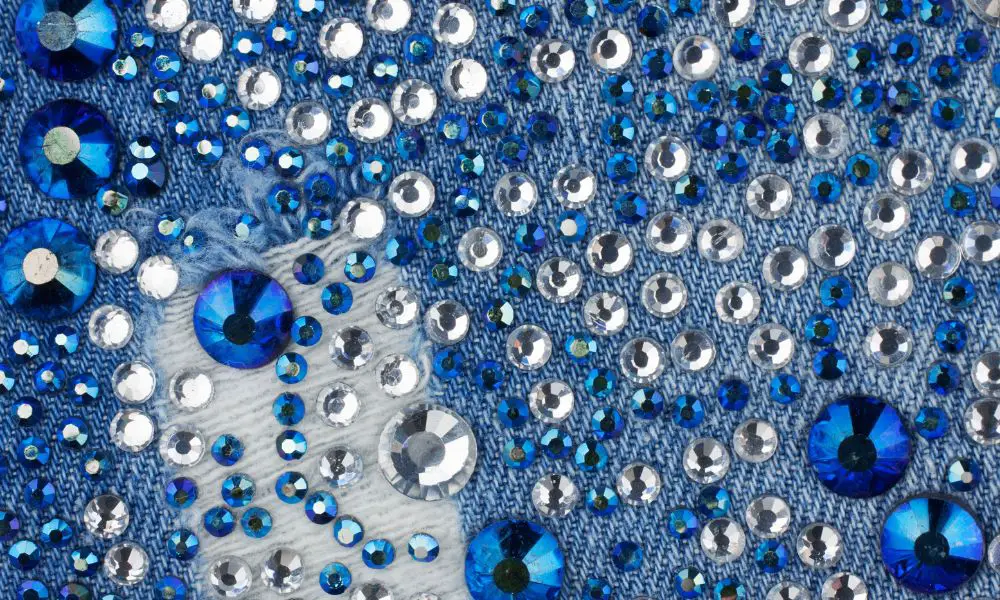

Rhinestones: these beautiful, glimmering faux stones are everywhere, and they can’t help but draw the eye. It’s no wonder why they were created; who doesn’t love shiny stones? But you might wonder who created them, when, and where. If you want to learn more about the origin and development of rhinestones, we provide a brief history of the imitation gemstone here.
There they were, sparkling beneath the dark cerulean surface of Central Europe’s Rhine River: countless leaded rock crystals. They were so alluring, with their shimmer and shine, that demand for them quickly rose. They were harvested en masse and used to create breathtaking jewelry and heavily embellished clothes for the wealthy. These were the original rhinestones: stones plucked from the Rhine River, an apt name indeed!
Eventually, the Rhine’s supply of rock crystals dwindled owing to the heavy demand. Therefore, the people of Europe were left with two choices: learn to live without them or find an alternative.
The latter was exactly what jewelers Joseph Strasser from Vienna, Austria, and Georg Friedrich Strass from France sought to do.
In the early 1700s, Strass experimented with creating imitation diamonds, using bismuth and thallium to make them refractive and metal salts to give them their color. One day, he decided to try gluing metal foil to the back of their imitations, which greatly improved their brilliance.
Later in the century, Strasser perfected the composition of “paste”—a type of manmade gemstone dating back to the Romans. Paste was originally colored, but Strass was able to produce a glassy, colorless paste that resembled diamonds. Strass coated the paste in a metal powder to improve its intensity.
While Strass is typically credited as the sole creator of rhinestones (hence why rhinestones are called “strass” in certain regions), both Strass & Strasser played a role in the development of these imitation gems.
In the early days, rhinestones were crafted by hand. The faux gems were priced extravagantly as a result of the intense labor required to produce them. It wasn’t until 1892, when Daniel Swarovski invented a glass-cutting machine for mechanically cutting and faceting glass, that rhinestones became available to the masses. Swarovski’s rhinestones were the best of the best and still quite costly, but it wasn’t long before more affordable brands entered the market.
The development of rhinestones has come a long way. Today’s rhinestones are markedly different from the rhinestones of old. While many still make them from crystal, others cut them from materials like quartz, glass, and plastic. They come in several varieties (flatback, hotfix, sew-on, and more), dozens of shapes, and thousands of hues. But one thing remains the same, like our ancestors, we love to add rhinestones to our clothes and crafts. You can adorn several popular items with rhinestones: dresses, shoes, vases, pillows, and more. You can also purchase rhinestones easily—and cheaply—in-person or online, a luxury those of the past couldn’t dream of.
When it comes to long-distance motorcycling, comfort, reliability, and smart engineering can make or break…
Flowers have seen significant transformation over time; online flower shopping is increasingly common now for…
Learn essential first-time landlord tips for success, from tenant screening to property maintenance. These strategies…
Every business will produce some form of waste. The real task isn’t preventing waste entirely—it’s…
Custom tailors can create unique garments that complement every inch of your body, and it’s…
Faulty wiring can ruin a perfect restoration. See how original-style harnesses preserve WWII Jeep reliability,…